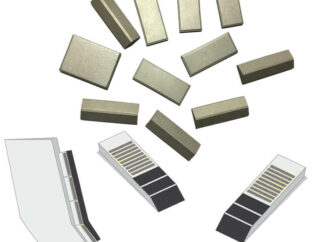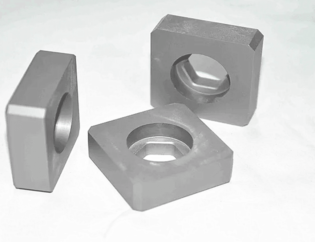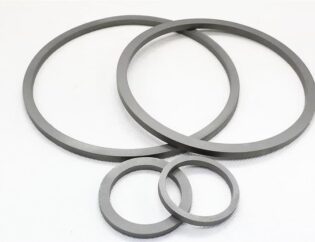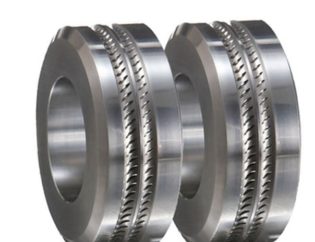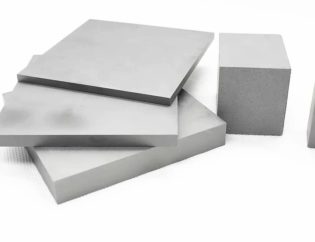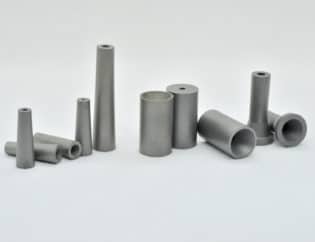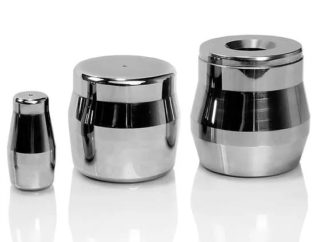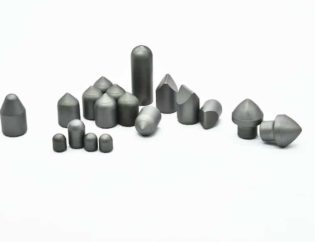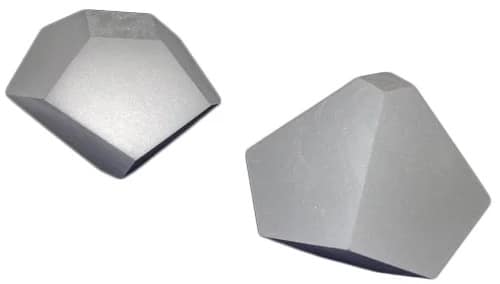
Cemented Tungsten Carbide Anvils & Pressure Cylinders
Cemented 6-facet Tungsten Carbide Adjustable Anvil for synthetic diamonds is the synthesization cavities and processed in manufacturing artificial diamond powder.
Carbide anvils hard alloy anvils is a key device during making diamond, adopting high temperature and pressing. Made from WC - cobalt alloy, tungsten carbide anvil is well known for its high strength, strong wear resistance, toughness, and excellent thermostabilization. Cemented Tungsten carbide anvils are installed to six synthetic diamond pressers and work in a super-critical state: 10 to 20 GPa and over 1500℃. They are able to work perfectly under such harsh conditions. The working life of tungsten carbide anvil is longer than that of similar products.
Sintering
HIP.
The advanced computer-controlled HIP furnaces are applied to provide more pressure during the sintering process in order to get denser structure.
Powder
Excellent.
We carefully select and control the excellent quality of our raw powders. Powder spray drying technology ensures the uniformity of distribution of particles.
Processing
In house.
We offer customers a wide array of processing services on-site including centerless grinding, CNC cylindrical grinding, CNC internal grinding, wire EDM, and laser etching, etc.
There are a few properties that need to be noticed when you choose 6 facet tungsten carbide anvils.
- Bending strength.
The bending strength of carbide anvil decreases at high temperatures. Cooled by water, we can prolong its service life. The bending strength is also related to its structure. - ?Compressive strength.
The compressive strength is the most important indicator of 6 facet cemented carbide anvils. - Impact toughness.
The impact toughness is highly related to the content of free carbon. Low impact toughness may lead to fracture. - Hardness.
The hardness of 6 facet tungsten carbide anvils indicates the compression resistance. It is related to cobalt content, WC particle size, and temperature.
1. Eliminate the residual stress on the carbide anvil after forming. Before using the carbide anvil, an aging treatment should be carried out, including natural aging, oven aging, boiling oil aging, vacuum aging and ultrasonic aging. The natural aging time should be no less than a month, and the aging oven temperature should be under 250°C for a period of no less than 72 hours.
2. Anvil Assembly Requirements
The taper on the anvil should be the same as that of a steel ring. The contact surface is ?90%. The press fitting height should also be reasonable. Under cM27mm, the press fitting height is 8-10mm, and above cM27mm, the press fitting height is 10-12mm. There should be no point contact between the anvil and the spacer blocks to avoid stress concentration.
3. Requirements for Raw and Auxiliary Materials
The machining precision of the steel ring and spacer blocks should meet all requirements. The smooth finish of the inner wall of the steel ring must achieve Ra1.6. The roundness and taper should conform to the tolerances of the form and position of the anvil. The depth of parallelism of large and small spacer blocks is ?0.02mm. The hardness is moderate. Pyrophyllite calcination temperature and time should be moderate, in order to prevent blowouts caused by poor pressure carrying performance pressure and a high moisture rate. The surface of the conductive steel ring is rust resistant, and the edge has no cracks. There is no discoloration phenomenon, even after baking. Please pay attention to moisture resistant storage.
4. Requirements for Equipment
The press should have an excellent adjusting accuracy, and leaks are prohibited. The synchronization and centering tolerance is no more than 0.2mm.
OEM Custom Service
We can develop grades as per your requirement and make the same shape as your drawing. Laser marking and neutral package are also available for your benefits.
